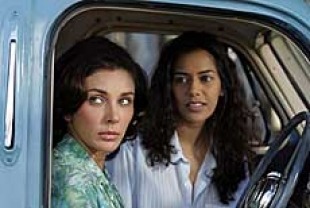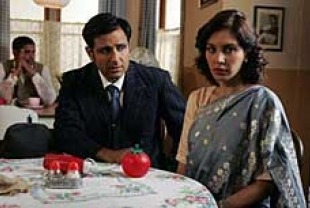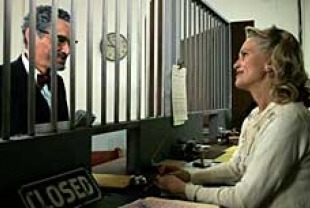In Cape Town, South Africa, in 1952, the police do all they can to make life miserable for blacks and "colored" Indians. They keep watch over Amina (Sheetal Sheth), a young, free-spirited Indian woman who owns a café with Jacob (David Dennis), a half-black, middle-aged man who has been humiliated by whites for his entire life. The two of them are proud of the funky place they run and cherish the few moments of pleasure and freedom they can savor there. Amina fondly remembers the independent spirit of her grandmother but has earned the ire of her own mother by wearing trousers and working in a man's world.
When Amina first sets eyes on Miriam (Lisa Ray) in the café, it is love at first sight. She is a married woman with two children and another on the way. Her authoritarian Indian husband, Omar (Parvin Davas), is a chauvinist who has stifled her spirit and makes her to work with him a small general store. Although his wife is a beautiful woman, he is having an affair.
The World Unseen is directed by Shamim Sarif based on her own critically acclaimed and award-winning novel. The film is written, directed, financed, and produced entirely by women, and it shows in the tender, tentative, and beguiling romance that unfolds between Amina and Miriam. The setting of South Africa and the oppressiveness of apartheid forms the backdrop of this compelling drama about the quest of several main characters for personal freedom. Amina yearns for a place where she can express her lesbian nature without hatred, gossip, and slander. Jacob yearns to respond to the affection of a white woman (Grethe Fox) at the post office but knows that he will not be able to overcome the racism of the community. And Miriam yearns to throw off the shackles of her marriage and be herself without regret.
The World Unseen reveals desire as a force field of energy that takes us beyond ourselves. "You have nothing infinite except your soul's love and desire," said the fourteenth-century Catholic mystic Catherine of Siena. Yearning is the best antidote to oppression, hatred, and rigid thinking. It opens up new doors to those who go with its flow.
Special features on the DVD include an audio commentary with director Shamim Sarif; Behind-the-Scenes Footage; and an interview with director Sarif.


